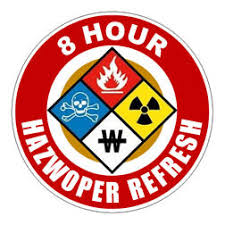The Importance of HAZWOPER Training in Hazardous Waste Operations
HAZWOPER, which stands for Hazardous Waste Operations and Emergency Response, is a set of standards developed by the Occupational Safety and Health Administration (OSHA) to protect workers involved in hazardous waste operations.
Workers in various industries, such as construction, manufacturing, and environmental remediation, may be exposed to hazardous substances during their work. HAZWOPER training is essential for these workers to understand the potential risks associated with handling hazardous materials and to know how to protect themselves and others from harm.
There are different levels of HAZWOPER training based on the specific tasks workers are expected to perform. These levels range from general site workers who may encounter hazardous materials to emergency responders who are trained to handle immediate threats posed by hazardous substances.
Some key components of HAZWOPER training include:
- Identification of hazardous substances
- Proper handling and storage of hazardous materials
- Personal protective equipment (PPE) use
- Decontamination procedures
- Emergency response protocols
By undergoing HAZWOPER training, workers can reduce the risks of exposure to hazardous materials and minimize the potential for accidents and injuries in the workplace. Employers are responsible for providing HAZWOPER training to their employees who work with hazardous materials and ensuring that they have the knowledge and skills necessary to perform their jobs safely.
In conclusion, HAZWOPER training plays a crucial role in protecting workers from the dangers associated with handling hazardous waste. By adhering to HAZWOPER standards and regulations, employers can create a safer work environment for their employees and prevent incidents that could have serious consequences for both individuals and the environment.
Essential HAZWOPER Safety Tips: Training, PPE, and Emergency Preparedness
- Understand the different levels of HAZWOPER training required based on job responsibilities.
- Ensure proper use of personal protective equipment (PPE) when working with hazardous materials.
- Follow established safety procedures and protocols to minimize risks in hazardous waste operations.
- Stay updated on the latest regulations and guidelines related to hazardous waste management.
- Participate in regular emergency response drills and training exercises to be prepared for any incidents.
- Seek medical attention immediately if exposed to hazardous substances and follow decontamination procedures.
Understand the different levels of HAZWOPER training required based on job responsibilities.
It is crucial for workers in industries dealing with hazardous waste to understand the various levels of HAZWOPER training required based on their job responsibilities. Different tasks may necessitate different levels of training to ensure that workers are adequately prepared to handle hazardous materials safely and effectively. By comprehensively understanding the specific training requirements for their roles, employees can enhance their knowledge and skills, mitigate risks associated with hazardous substances, and contribute to a safer work environment for themselves and their colleagues.
Ensure proper use of personal protective equipment (PPE) when working with hazardous materials.
It is crucial to ensure the proper use of personal protective equipment (PPE) when working with hazardous materials. PPE such as gloves, goggles, respirators, and protective clothing are essential for protecting workers from exposure to harmful substances and preventing injuries. By wearing the appropriate PPE and following safety protocols, workers can minimize the risks associated with handling hazardous materials and create a safer work environment for themselves and their colleagues. Employers should provide adequate training on the correct use of PPE and enforce compliance to ensure the well-being of their employees.
Follow established safety procedures and protocols to minimize risks in hazardous waste operations.
Following established safety procedures and protocols is crucial in hazardous waste operations to minimize risks and ensure the safety of workers and the surrounding environment. By adhering to prescribed guidelines for handling hazardous materials, using appropriate personal protective equipment, and following decontamination procedures, workers can significantly reduce the chances of accidents, injuries, and exposure to harmful substances. Strict adherence to safety protocols not only protects individuals on site but also helps prevent environmental contamination and long-term health hazards. Prioritizing safety measures in hazardous waste operations is essential for maintaining a secure work environment and promoting the well-being of all involved parties.
Stay updated on the latest regulations and guidelines related to hazardous waste management.
It is crucial for workers involved in hazardous waste operations to stay updated on the latest regulations and guidelines related to hazardous waste management. By staying informed about changes in regulations, workers can ensure that they are following best practices and maintaining compliance with safety standards. Regularly reviewing and understanding the current guidelines can help prevent accidents, minimize risks, and protect both the workers and the environment from potential harm associated with hazardous waste handling.
Participate in regular emergency response drills and training exercises to be prepared for any incidents.
Participating in regular emergency response drills and training exercises is crucial for workers involved in hazardous waste operations. These drills help employees familiarize themselves with emergency protocols, practice quick and effective responses to hazardous incidents, and enhance their overall preparedness for unexpected situations. By engaging in such training exercises, workers can improve their ability to handle emergencies efficiently, minimize risks to themselves and others, and contribute to a safer work environment. Consistent participation in drills ensures that workers are well-equipped to respond effectively in real-life emergency scenarios, ultimately promoting a culture of safety and readiness within the workplace.
Seek medical attention immediately if exposed to hazardous substances and follow decontamination procedures.
In hazardous waste operations, it is crucial to seek medical attention immediately if exposed to hazardous substances and adhere to proper decontamination procedures. Prompt medical evaluation can help mitigate the potential health risks associated with exposure to hazardous materials, while following decontamination protocols can prevent further contamination and protect both the individual and others from harm. Prioritizing quick action in response to exposure incidents is essential in ensuring the safety and well-being of workers in hazardous environments.

